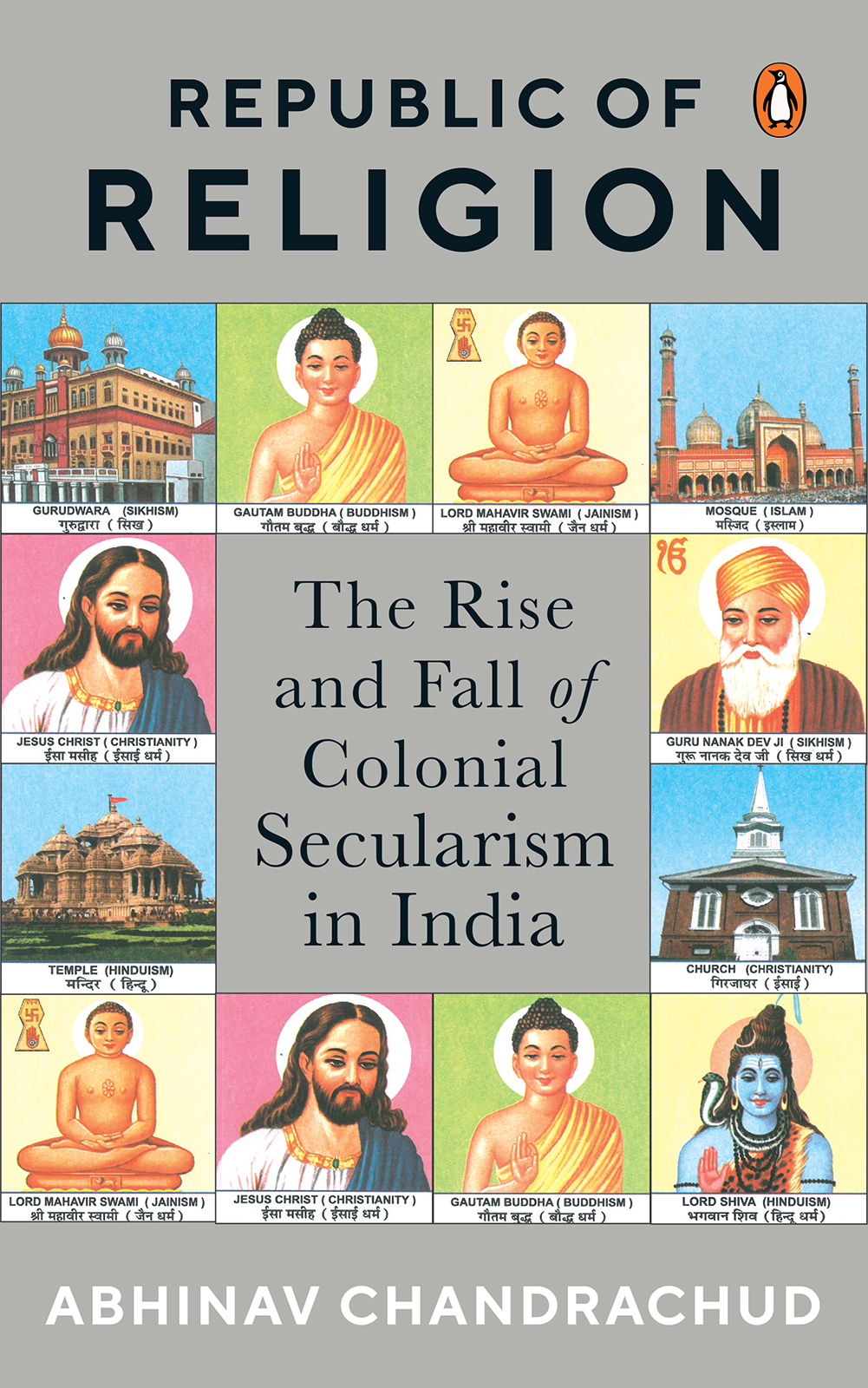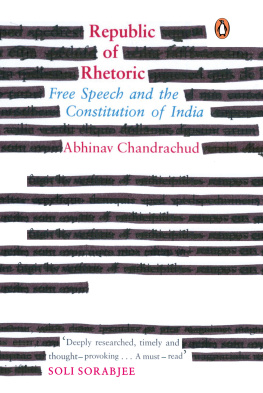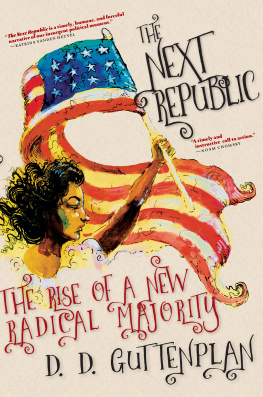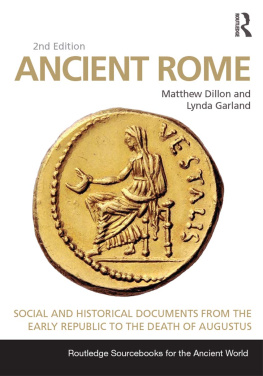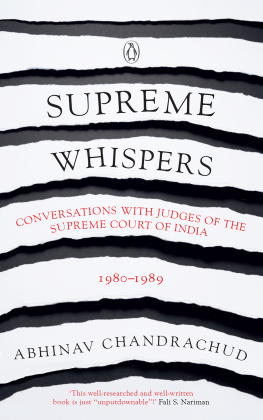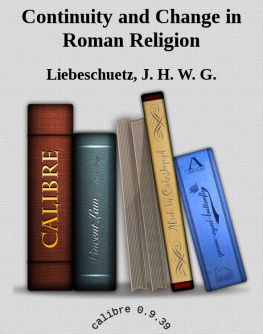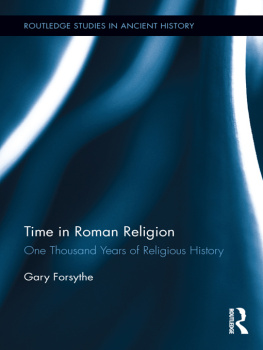ABHINAV CHANDRACHUD
Republic of Religion
The Rise and Fall of Colonial Secularism in India
Contents
To Radha
I am not me without you
Introduction
How did India aspire to become a secular country? Given our colonial past, we derive scores of our laws and institutions from England. Many provisions in our statutes like the nineteenth-century Indian Contract Act and Indian Evidence Act are based on the English common law. We have a parliamentary democracy with a Westminster model of government. Our courts routinely use catchphrases like rule of law or natural justice that have their roots in London. However, in more ways than one, during the period of colonial rule in India and even thereafter, England was not a secular country, in the sense in which we might understand that word today. For instance, for much of the nineteenth century, a member of the royal family could be disqualified from succeeding to the Crown upon merely marrying a Roman Catholic.
Even today, there are many things about England which make it formally look like anything but a secular state.
Though scholars disagree on the meaning of secularism, broadly speaking, two factors go into making a secular state: no religion should be established by law as the official state religion and all citizens should have the freedom to practise their own religious beliefs. Unlike the US, England has an established religion. If India derives so many of her laws and institutions from England, how is it that there is no established religion in India?
In the coming pages, we will see that secularism was artificially imposed by the British colonial government in India even though it did not fully exist in England. The law in England assumed only Christianity to be the one true religion, and Indian religions like Hinduism and Islam were considered to be heathen. Therefore, though England had an established religionChristianity through the Church of Englandit could not declare an Indian religion, like Hinduism or Islam, as the official religion of India. It could not force Christianity on India probably due to the fact that this would have made the colony ungovernable. Instead, it decided to separate religion and the state in India. Though government officials in England were entangled with the administration of churches there, colonial officials felt uncomfortable associating with false Indian houses of worship like temples and mosques and therefore assigned them to the administration of Indian trustees.
British officials adopted a policy of secularism in Indiain contrast to Englandwhich will be referred to here as colonial secularism. Though secularism is itself a relatively new though England did not have a separate set of personal laws for its religious minorities like Catholics and Jews. Adopting the old Roman strategy of retaining the laws of conquered territories in order to make them more easily governable, colonial officials decided against adopting a uniform civil code in family law matters. Cow slaughter, though reviled by much of Indias majority Hindu populace, was permitted to be carried out by Muslims during the festival of Bakr Id and Hindus who objected to it were considered hypersensitive. Seats on legislative bodies were filled by voters on the basis of separate electorates. Thirdly, the government tacitly, though nervously, encouraged Christian missionaries to preach Christianity and obtain converts though a Hindu or Muslim preacher who might have tried to do the same in England would have put himself at risk for criminal prosecution.
In 1835, Thomas Babington Macaulay wrote in his infamous minute
In the middle of the nineteenth century, Austrian-born Aloys Sprenger was appointed the principal of the colonial governments madrasa in Calcutta. Sprenger thereafter wrote a book in which he condemned Islam as a false religion and banned students from attending religious ceremonies during class hours.
Since 1854, the colonial governments policy was that education at government institutions had to be secular,
There is some evidence to suggest that the government reversed its secular education policy because it believed that students who were given religious instruction would be more loyal to the government and less seditious.
Though the British did not invent Hindu or Muslim identities, A Hindu may have viewed himself as belonging more to a religious sect or a caste.
So how would the government identify whether a person was a Hindu? Once religious identities were reduced to watertight binaries in India, the British justified their rule by promising that they would protect religious minorities through their secular policy of non-interference.
Though correlation is not causation, and though inter-religious conflict occurred even in pre-colonial India,
In the guise of protecting religious minorities in British India, the colonial government sometimes appeared to use secularism as a device to pursue a policy of divide and rule. Nothing illustrates this better than the system of separate electorates. When elections took place to the House of Commons in England, voters were not segregated on the basis of their religious beliefs. However, from 1909 onwards, when elections were introduced to legislative bodies in India, voters were divided on the basis of their religionHindu voters would only vote for Hindus, Muslim voters only for Muslims, and so on. Further, Muslims were given a weightage of seats in legislative bodies which far exceeded their numbers in the population. For instance, in 1919, Muslims constituted only 14.3 per cent of the population of the United Provinces, but they received a share of 26 per cent of the seats in the provincial legislative council. None of this was prevalent in England, on the other hand, where religious minorities like Catholics and Jews were not given separate electorates.
This system in British India encouraged radical electoral candidates to contest elections. For instance, candidates fielded by the Muslim League could demand the creation of Pakistan knowing that their electoral success depended only on the votes of the Muslim electorate, and that they did not have to care about Hindu voters. Even a scholar who disagrees that the British consciously pursued a policy of divide and rule in India argues that the colonial governments policies hugely contributed to Muslim separatism in India.
In other words, colonial secularism in British India was imperial hypocrisy, an example of colonial difference, an instance of how Britain did one thing at home and another in the colonies, a device used to justify and sustain Britains hold over India. In fact, the colonial governments decision to secularize laws and institutions and offer English education to Indians was, at some level, designed to pave the way for the spread of Christianity in India, by reducing the dependence of Indians on their own indigenous religious customs and institutions.
Therefore, given its dubious origins, the disintegration of the secular state in India began much before the rise of the Hindu right, the Bharatiya Janata Party (BJP) and the Rashtriya Swayamsevak Sangh (RSS). When Indian leaders came to power, both before and after Independence, they rejected the enforced notion of colonial secularisma secularism which was born out of a Christian evangelical sense of revulsion towards Indian religions. Instead, they adopted a version of secularism which is described here as soft secularism. God was introduced into the Constitution through the oaths that public officials were required to take prior to assuming office. Governments began entangling themselves in the administration of Hindu temples with a view to preventing corruption.

